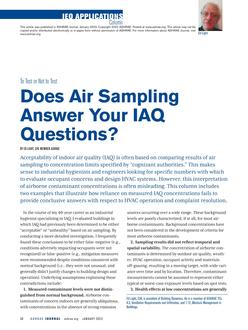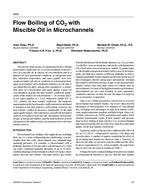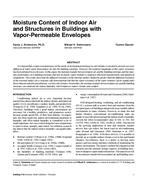This paper examines energy consumption and air°, tightness data from 820 electrically heated houses built since 1980 in the Pacific Northwest. Half of the buildings were energy-efficient structures built to the Model Conservation Standards (MCS) developed in the region. The rest of the sample were conventional new houses intended to be representative of current building practices. The houses were monitored for a period of one year with the structures audited to determine insulation levels and occupancy characteristics. In the analysis of the monitored data we found that heating system type plays a large role in determining the relative efficiency of electrically heated houses, Residences with electric forced-air heating systems used an average of 1.40 kWh/ft2 (15.1 kWh/m2) more space heating energy than those without them. We also discovered through the use of fan pressurization and perfluorocarbon tracer gas tests (PFT) that houses with forced-air systems exhibited substantially higher levels of air leakage. The tracer gas tests indicated an average of 70% higher levels of air change rate in the control houses with forced-air space heat as opposed to baseboard systems.
Citation: Symposium, ASHRAE Trans., vol. 95, pt. 2
Product Details
- Published:
- 1989
- Number of Pages:
- 7
- File Size:
- 1 file , 1 MB
- Product Code(s):
- D-27223


